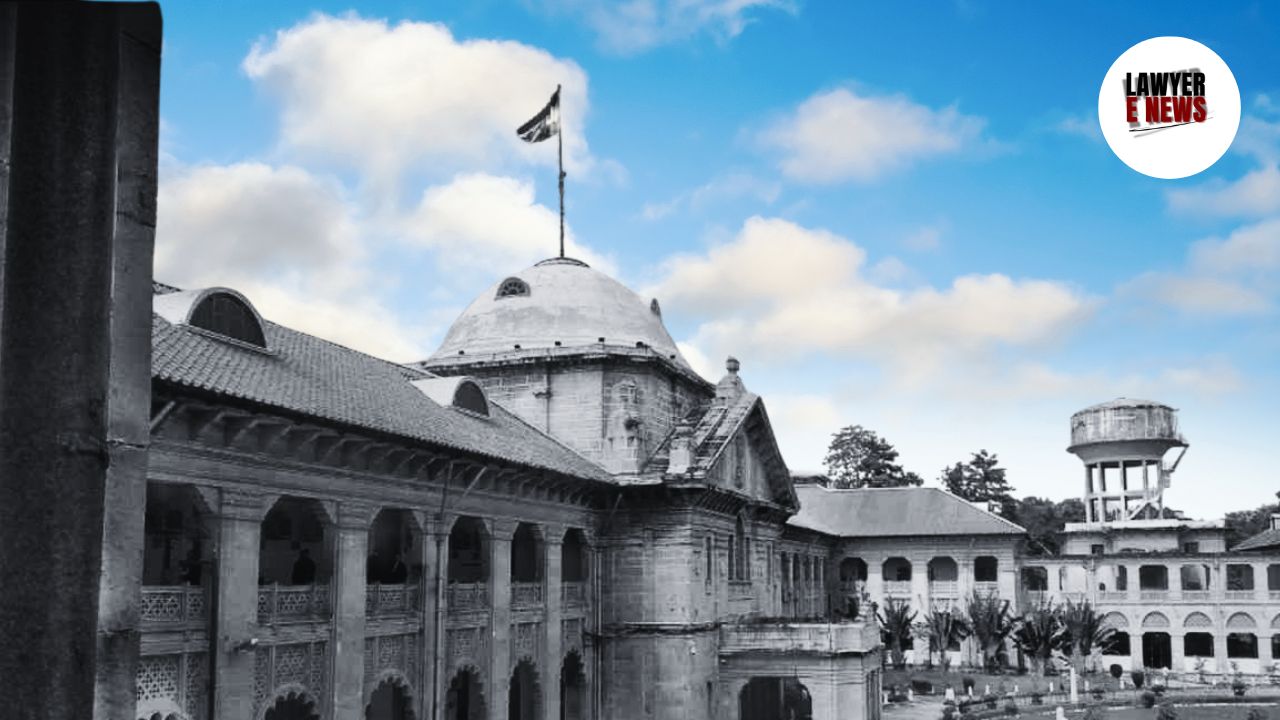-
by Admin
15 February 2026 5:01 PM



Allahabad High Court, presided by Justice Rajnish Kumar, upheld and modified the award of compensation in First Appeal From Order No. 42 of 2016, filed under Section 173 of the Motor Vehicles Act, 1988. The Court affirmed the dependency of a retired father on his deceased daughter and emphasized the duty of courts to ensure "just compensation" under welfare legislation like the Motor Vehicles Act.
The respondent, Bhawani Prasad Manjhi, claimed dependency on his deceased daughter, Dr. Tandra Manjhi, who was fatally injured in a motor accident involving a bus of the Uttar Pradesh State Road Transport Corporation (UPSRTC). The appellant contended that a father could not be considered dependent without evidence, particularly since the mother of the deceased had passed away during the proceedings. However, the Court found that the claimant had no pensionable income post-retirement, was residing with his deceased daughter, and had proven his dependency.
The Court relied on Sarla Verma v. Delhi Transport Corporation to establish that a father could be considered a dependent if evidence demonstrated the absence of independent income. It noted that the dependency claim was not effectively challenged during cross-examination.
The Court upheld the tribunal's finding of negligence on the part of the UPSRTC driver. The appellant claimed that the accident occurred due to a blue cow suddenly crossing the road, forcing the driver to take emergency measures. However, the Court observed that the driver was not produced as a witness, and the conductor’s testimony confirmed that the bus was driven at high speed. An eyewitness also corroborated that the bus was being operated rashly and negligently at the time of the accident.
The tribunal initially applied a multiplier of 17 for the deceased, aged 33. Citing National Insurance Co. Ltd. v. Pranay Sethi and Sarla Verma v. Delhi Transport Corporation, the High Court corrected the multiplier to 16. It further added a 50% enhancement for future prospects, which the tribunal had omitted. The Court noted that as the deceased was in a permanent job and under 40 years of age, this enhancement was mandatory.
Additionally, the Court raised the interest rate on the awarded compensation from 7% to 9% per annum, including the component for future prospects. It highlighted that future prospects are integral to the compensation amount and should attract interest from the claim petition’s filing date.
The judgment emphasized that courts and tribunals must ensure “just compensation” irrespective of the claims made by the parties. The Motor Vehicles Act, being welfare legislation, mandates an equitable approach to compensation. Justice Kumar remarked, “Tribunals and courts must independently determine and award compensation that fully accounts for the loss suffered, even if such claims are not explicitly raised.”
The modified compensation totaled ₹50,35,456, comprising loss of dependency, consortium, estate, and funeral expenses, with interest at 9% per annum from the claim's filing date.
This ruling reinforces judicial commitment to ensuring just compensation under welfare statutes. By recognizing the dependency of a retired father and enhancing the compensation, the Allahabad High Court underscores the importance of a comprehensive approach to claims in motor accident cases.
Date of Decision: December 9, 2024
